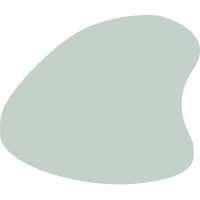Are you struggling with Teeth Grinding & Bruxism? Picture this all-too-common scenario: It’s deep into the night, and although exhaustion weighs heavily on you, sleep slips just beyond your grasp. As you hover on the brink of slumber, your teeth clench and grind with relentless intensity. Sharp pains shoot through your mouth, wrenching you back to wakefulness.
Night after night, this vicious cycle of discomfort and sleeplessness persists, dominated by your unseen adversary: bruxism. This condition makes the restorative sleep you desperately need seem like an unattainable dream. Yet, there is hope on the horizon.
In the following discussion, we’ll explore effective strategies to combat bruxism, paving the way for the restorative sleep you’ve been missing.
What is Bruxism?
Bruxism is the unwelcome companion of the night: excessive teeth grinding and jaw clenching that often occur during sleep. Surprisingly, nearly 30% of people suffer from this, leaving them exhausted and in pain. This constant grinding not only creates disruptive noise but also wears down tooth enamel, and leads to chips, breaks, and severe tooth pain. It doesn’t stop there—your jaw muscles bear the brunt too, resulting in aching jaws and intense headaches.
The repercussions extend further; the grinding sound can disrupt your partner’s sleep, compounding the stress of already restless nights. The relentless fatigue from sleepless nights diminishes your overall quality of life. However, recognizing and addressing teeth grinding bruxism early can significantly mitigate its impact, leading to quicker relief and better nights of sleep.
Symptoms and Causes of Bruxism
How can you tell if you’re among the 30% grappling with bruxism? Watch for these telltale signs of excessive grinding:
- Flattened Teeth: Persistent grinding wears down your teeth, smoothing out the natural contours of your bite.
- Teeth Sensitivity: As the protective enamel wears away, your teeth become painfully sensitive to temperature extremes.
- Aching Face: Overworked jaw and facial muscles leave your face feeling sore, stretching from your temples to your neck.
- Morning Headaches: A tight, clenched jaw at night often results in throbbing headaches by morning.
- Stiff Jaw: A sore and stiff jaw that resists opening properly can make eating a chore rather than a pleasure.
- Interrupted Sleep: The sound of your grinding can disturb your partner, leading to lost sleep for both of you.
If these symptoms sound familiar, it’s time to consult with a dentist. Dr. Drew Randall can assess any damage and confirm whether it’s due to teeth grinding bruxism. Catching and addressing it early can prevent further damage, so don’t delay in getting checked out.

Why Are You Grinding Your Teeth?
Bruxism can sneak up for various reasons, including:
- Stress: High levels of worry and stress can keep your jaw tight and active.
- Personality: A driven, competitive nature might mean your jaw is also working overtime.
- Genetics: Sometimes, the tendency towards bruxism runs in families.
- Medications: Certain medications, such as antidepressants and ADHD treatments, can increase jaw muscle activity.
- Sleep Disorders: Conditions like sleep apnea can disrupt your sleep and lead to nocturnal jaw activity.
- Dental Issues: Misaligned teeth or an uncomfortable bite might cause you to grind more.
- Lifestyle Choices: High caffeine intake or alcohol consumption in the evening can exacerbate grinding.
Identifying and avoiding your triggers is crucial, but sometimes more substantial measures are necessary to put a stop to bruxism. Without intervention, the condition will only become more challenging to manage.
The Consequences of Untreated Bruxism
Ignoring persistent teeth grinding can lead to severe dental and health issues:
- Decay: Bruxism can cause gums to recede and expose tooth roots, leading to decay.
- Tooth Loss: Severely damaged teeth may need to be removed.
- Jaw Damage: Excessive grinding puts immense stress on your TMJ (jaw joint), which can result in injuries.
- Bone Erosion: Continued stress on the jawbone can lead to its gradual erosion.
- Headaches and Ear Problems: The tension from grinding can cause ongoing severe headaches and even tinnitus.
Addressing bruxism early is crucial to avoid a cascade of dental and health problems. If you suspect you might be suffering from this condition, take action now to protect your dental health and enhance your overall well-being. Consult Dr. Drew Randall to explore your treatment options and start on the path to better sleep and a healthier life.
Solutions and Treatments for Bruxism
Battling bruxism doesn’t mean you’re out of options. There are several effective ways to protect your teeth and alleviate discomfort:
Custom Mouth-guards: Often the first line of defense, dental mouth-guards crafted by our team can cushion your teeth at night, reducing the impact of grinding and protecting your smile.
Dental Correction: Misalignment can contribute to bruxism. Braces or clear aligners can help straighten your teeth, optimizing your bite to reduce clenching.
Stress Reduction: Stress is a common trigger for grinding, so techniques like meditation, yoga, or counseling can help calm both your mind and jaw.
Medications: In some cases, medications that relax the jaw or address sleep issues can directly reduce tension.
Botox Injections: For severe cases, Botox injections can relax the overworked jaw muscles, significantly decreasing grinding.
Vivos Treatment: Designed to address the underlying causes of bruxism, Vivos treatment spans 12-24 months, potentially offering early improvements and a long-term solution for persistent grinders.
Each of these solutions can be tailored to your specific needs. Starting with a consultation, our dental team, led by Dr. Drew Randal, will guide you to the most suitable option for your situation. Together, we can ensure your teeth—and you—get the rest they deserve.
Quick Comfort Hacks for Hurting Jaws
Dealing with bruxism doesn’t mean enduring discomfort while waiting for long-term treatments to take effect. Here are some quick relief methods to ease jaw pain:
Heat and Ice Therapy: Alternating between a warm compress to relax tight muscles and a cold pack to reduce swelling can provide immediate relief.
DIY Massages: Gently massaging sore cheeks and neck areas can help relieve muscle tension. Avoid direct pressure on the TMJ to prevent aggravation.
Warm Towel Application: Applying a towel soaked in warm water to your cheek can offer soothing relief and comfort.
OTC Pain Relievers: Non-prescription pain relievers like ibuprofen can reduce inflammation and alleviate pain.
Relaxation Techniques: Activities that promote relaxation, such as meditation or yoga, can help lessen jaw tension.
Ice Chips: Sucking on ice chips can keep your mouth occupied and soothe your jaw, helping to resist the urge to grind.
While these tips won’t cure bruxism, they can significantly alleviate discomfort as you explore more permanent solutions. There’s no need to suffer—begin managing the pain today.
Take Action Now
At Oak Tree Dental, with Dr. Anthony Grados at the helm, we are deeply committed to your child’s oral health and their confidence in their smile. We understand that teeth grinding can be a significant concern, affecting not just the condition of their teeth but also their overall well-being.
Teeth grinding can impact more than your child’s dental health; it can affect their comfort and self-esteem. At Oak Tree Dental, we believe every child deserves a life free from the discomfort and worry of teeth grinding.
Here’s our approach to teeth grinding & bruxism:
- Consultation: Dr. Anthony Grados will personally assess your child’s dental needs during a thorough initial consultation.
- Customized Treatment Plan: We tailor a specific plan that aligns with your child’s unique requirements.
- Gentle, Effective Treatment: We use the latest techniques to ensure the treatment is as comfortable and effective as possible.
Schedule your consultation today and take the first step towards relieving the burden of crooked teeth. Let us help your child start their journey to a beautiful smile and increased confidence. At Oak Tree Dental, your child’s radiant smile is our top priority.


